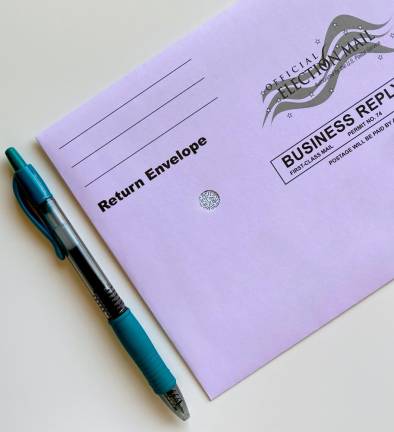Pennsylvania’s high court orders counties not to count disputed ballots in US Senate race
Milford. A statewide recount of the senate race was triggered due to the close margin.

Pennsylvania’s state Supreme Court on Monday weighed in on a flashpoint amid ongoing vote counting in the U.S. Senate election between Democratic Sen. Bob Casey and Republican David McCormick, ordering counties not to count mail-in ballots that lack a correct handwritten date on the return envelope.
The order is a win for McCormick and a loss for Casey as the campaigns prepare for a statewide recount and press counties for favorable ballot-counting decisions while election workers are sorting through thousands of provisional ballots.
McCormick’s campaign called it a “massive setback” for Casey.
The Democratic-majority high court’s order reiterates the position it took previously that the ballots shouldn’t be counted in the election, a decision that Republicans say several Democratic-controlled counties nevertheless challenged.
In a statement, Gov. Josh Shapiro, a Democrat, said a lack of legal clarity had surrounded the ballots, putting county officials in a position where they were “damned if they did and damned if they didn’t — likely facing legal action no matter which decision they made on counting.”
It comes amid a gust of fresh litigation in recent days filed by both campaigns, contesting the decisions of about a dozen counties over whether or not to count thousands of provisional ballots.
Casey’s campaign says the provisional ballots shouldn’t be rejected for garden-variety errors, like a polling place worker forgetting to sign it. Republicans say the law is clear that the ballots must be discarded.
The Associated Press called the race for McCormick last week, concluding that not enough ballots remained to be counted in areas Casey was winning for him to take the lead.
As of Monday, McCormick led by about 17,000 votes out of almost 7 million ballots counted — inside the 0.5% margin threshold to trigger an automatic statewide recount under Pennsylvania law.
Statewide, the number of mail-in ballots with wrong or missing dates on the return envelope could be in the thousands.
Republicans last week asked the court to bar counties from counting the ballots, saying those decisions violate both the court’s recent orders and its precedent in upholding the requirement in state law that a voter write the date on their mail-in ballot’s return envelope.
Democratic-majority election boards in Montgomery County, Philadelphia and Bucks County voted to count the ballots that lacked a correct date, echoing election officials around the state who say the date tells them nothing about a voter’s eligibility or a ballot’s legitimacy.
Republicans maintain that the date is a critical element of ballot security.
At first, Republicans also asked a court to block the count in Centre County. They later withdrew the protest of two ballots and its challenge to a third was filed too late, a court ruled. Centre County said one ballot had too many characters in the “date” boxes, another voter had changed a digit and another voter wrote the date as day-month-year, rather than month-day-year.
The vast majority of counties — including several heavily populated counties controlled by Democrats — didn’t count them.
Democrats cast more mail-in ballots than Republicans, and Democrats in the past have supported counting ballots that trip over what they view as meaningless clerical requirements in state law.
Various courts have ruled against the dating requirement in at least a half-dozen cases — including once by the 3rd U.S. Circuit Court of Appeals — but higher courts have always reinstated it.
Meanwhile, the state Supreme Court has put off ruling on a pending case that calls into question whether the law violates the constitutional right to vote.
McCormick took a position aligned with Democrats in his failed eleventh-hour bid to close the gap in votes with celebrity heart surgeon Dr. Mehmet Oz in Pennsylvania’s Republican primary contest for U.S. Senate.
In that case, McCormick’s lawyer told a state judge that the object of Pennsylvania’s election law is to let people vote, “not to play games of ‘gotcha’ with them.”